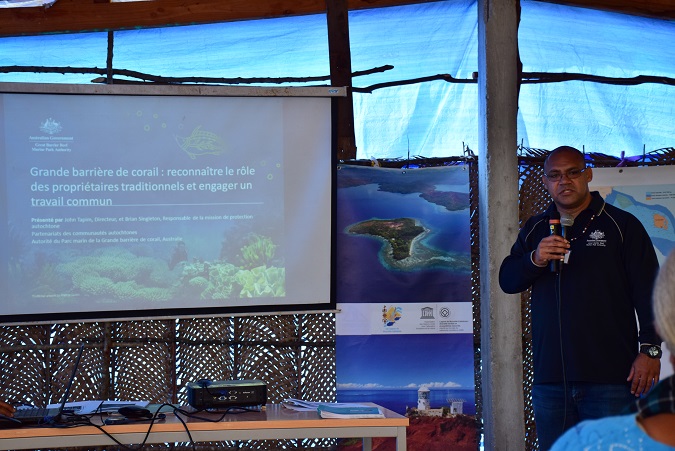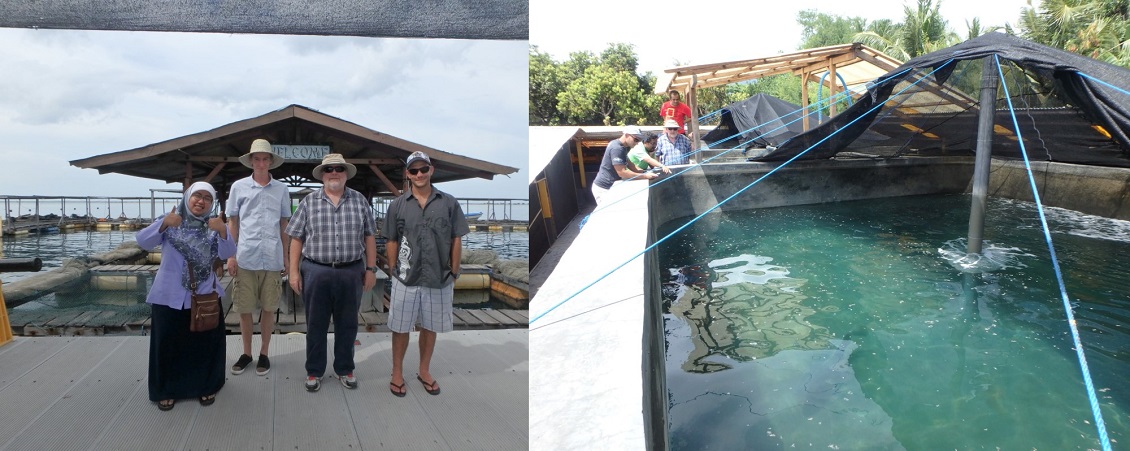Sustainable Tourism

Tourism offers strong economic development potential in most European Pacific territories. However, it must be developed in an environmentally and socially sustainable manner. In this area, INTEGRE has set 4 objectives :
- Implement pilot projects that meet sustainable tourism criteria
- Contribute to improving tourism as a vector for sustainable local development
- Reduce the environmental impact on the natural environment of tourism-related visitor numbers
- Raise awareness among stakeholders of the various components of sustainable tourism
More than a type of tourism, we must understand sustainable tourism as an approach, a working method, to be applied to all forms of tourism to make them more consistent with sustainable development. The World Tourism Organization, in its publication "Towards a more sustainable tourism, a guide for decision-makers", has formalized this approach in the form of 12 objectives.
-
12 objectives for a more sustainable tourism
- Economic viability: to ensure the viability and competitiveness of tourist destinations and businesses, so they can prosper and continue to produce profits in the long term ;
- Local development: maximise the contribution of tourism to the prosperity of the host destination, thus also the proportion of tourist expenditure retained locally ;
- Job quality: increase the number and quality of local jobs created or induced by tourism, including wages, working conditions and the fight against discrimination ;
- Social equity: seeks a broad distribution of the economic and social benefits of tourism among the host population, including improved opportunities, employment and services for the poor ;
- Tourist satisfaction: provide a rewarding, satisfying and safe experience for visitors without discrimination ;
- Local control of development: involve and strengthen local populations in planning and decision-making on the management and future development of tourism in their region, in partnership with other stakeholders ;
- Well-being of host communities: maintaining and strengthening the quality of life of local populations (social structures, access to resources, public services, nuisances, etc.) ;
- Cultural wealth: respect and improve the historical heritage, culture, traditions and specificity of local communities ;
- Physical integrity: maintain and improve the quality of landscapes, rural and urban, and avoid physical and visual degradation of the environment ;
- Biological diversity: support the conservation of natural spaces, habitats and species, and minimize impacts ;
- Resource efficiency: minimize the use of scarce and non-renewable resources in the development and management of tourism facilities and services ;
- Environmental quality: minimize air, water and soil pollution, as well as waste production from businesses and visitors.
According to the definition of the World Tourism Organization (UNWTO), "sustainable tourism development meets the current needs of tourists and host regions while protecting and improving prospects for the future. It is seen as leading to the management of all resources in such a way that economic, social and aesthetic needs can be met while maintaining cultural integrity, essential ecological processes, biological diversity and living systems.”

Download our fact sheet on INTEGRE's commitment to sustainable tourism : INTEGRE is committed to sustainable tourism (in French)
Events RA
- 31.05.18
Présentation du projet INTEGRE au Sénat
Présentation du projet INTEGRE au Sénat
L’équipe INTEGRE a présenté le projet au colloque sur la biodiversité du vaste Pacifique
- 30.05.18
Présentation du projet INTEGRE au sous-comité du CRGA de la CPS
Présentation du projet INTEGRE au sous-comité du CRGA de la CPS
L’équipe INTEGRE a présenté le volet régional "Réseau de fermes pilotes bio" dans les séances thématiques "Changement climatique et résilience / gestion des risques de catastrophe"
- 11.04.18
Présentation du projet INTEGRE au chef de la délégation de l'UE dans le Pacifique
Présentation du projet INTEGRE au chef de la délégation de l'UE dans le Pacifique
A l’occasion de la visite officielle en Nouvelle-Calédonie de Monsieur Julian Wilson, chef de la délégation de l’UE dans le Pacifique, la CPS a invité les autorités et les partenaires de Nouvelle Calédonie à visiter l’exposition INTEGRE.


















































































